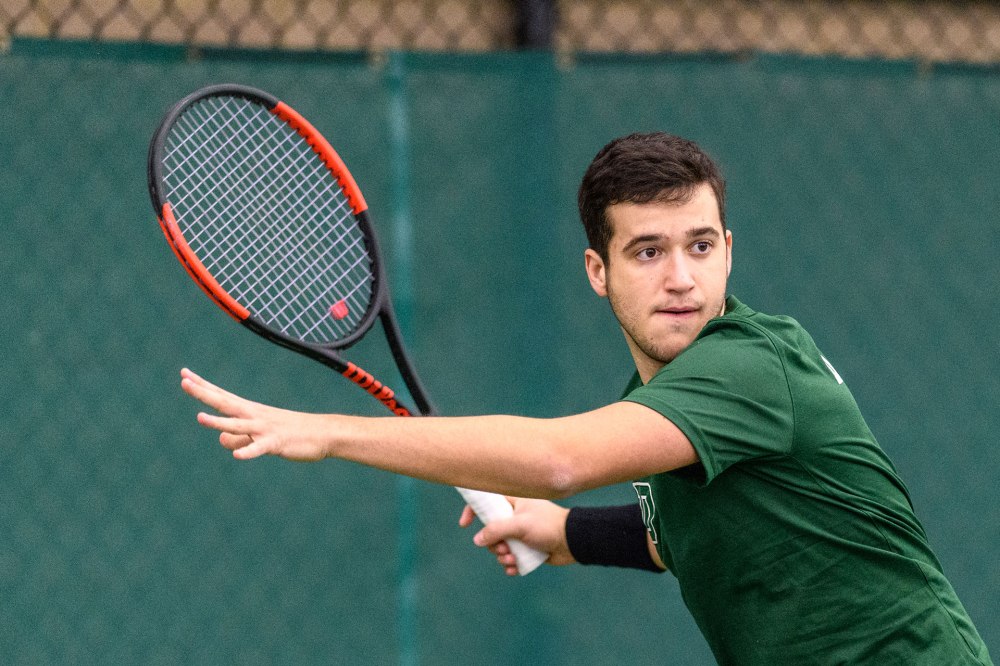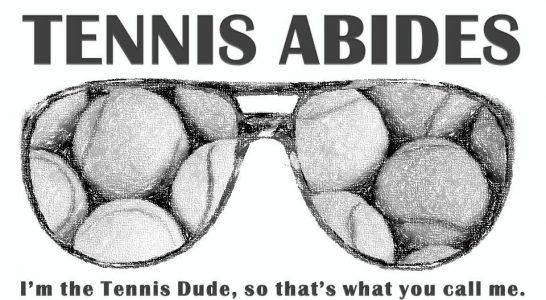
1) So Dan, I became aware of your junior play in Canada once when seeing where my site was on Google’s traffic. I was thrilled to see someone named “Dan Martin” playing tennis at a high level. What were your biggest results in junior tennis?
My tennis “career” started very early and I’m proud of all my tournament participations, especially when I come close to the podium or just on top of it. I would mention here some of my notable ones:
- Champion – U12 Quebec Championship – Rimouski 2011
- Double Finalist ITF Grade 5 – Victoria 2014
- Quarter Finalist ITF Grade 5 – Vancouver 2014
- Double Champion ITF Grade 4 – San Salvador 2015
- U16 Canadian Championship (indoor) 5th place – Montreal 2015
- Vice Champion of U16 Canadian Championship (outdoor) – Gatineau 2015 (as well as a recipient of the Boys Sportsmanship Award)
- Semi-Finalist ITF Grade 5 – Burlington 2015
- Double Champion and Single Finalist ITF Grade 5 – Bahamas 2015
- Champion ITF Grade 5 – Burlington 2016
- Quarterfinal ITF Grade 2 – Montreal 2016
2) Your biography on Dartmouth’s site mentions that you speak French, English, and Romanian. What is your family background? Did it impact your interest in tennis?
My parents and I were born in Romania and decided to move to Canada in early 2000. I do not come from a very sporty and athletic family background however, my father used to play tennis with his friends during my early ages and I could not resist to try the sport myself. I picked up one of my father’s rackets and started hitting some balls at the wall. Next thing we knew, a very experienced coach asked my father how long I have been playing tennis and my father told him that it was the first time I picked up a tennis racket. They knew that there was something unique in me and that I should give the sport a try. And they were right.

3) What were your experiences being recruited to play NCAA tennis? How did you decide on Dartmouth?
I was approached by more than 40 colleges, I was shocked to see the interest that these schools had in me. Worth to mention that the first coach that contacted me was from an Ivy League university. It fit me well with my interest in continuing to maintain a strong balance between good academics and a good level of tennis. There were a couple Ivies interested in me but in the end, Dartmouth seemed to be the best home away from home. From amazing faculty members, great teammates, welcoming people to an amazing campus only a few hours of drive away from my home town Montreal. It truly made me believe that this was the place I wanted to spend the next four years of my life.
4) How have you adapted to NCAA tennis? What has been the most difficult aspect of NCAA tennis?
I have adapted very quickly and very well to my new lifestyle right from my freshman fall. The biggest challenge that I had to face at Dartmouth was the increased expectations from coaches, both on and off the court, and the incredible high academic level. The balance at Dartmouth between school and athletics was a step up from what I’ve experienced in high school, despite the fact that I graduated from one of the top high schools in Quebec. But I managed to adapt and do very well.

5) How are you balancing the academic demands of an Ivy League school with the time demands of playing high-level tennis for a team?
It definitely isn’t easy and something that everyone can do. With collegiate tennis taking over 25+ hours a week with practices and competitions, it is very demanding and difficult to balance both worlds at a very high level. From excused missed classes due to traveling, office hours, late nights studying and accumulated exhaustion, it takes a very serious individual with a strong heart to be able to willingly put efforts in both fields at its highest levels. Often, we have to take out our laptops in some inconvenient moments such as in cars, in airports, airplanes and in hotels due to the constant work and projects Ivy League expects us to complete despite being student-athletes on the road.
6) What advice do you have for high-level juniors looking at Divison 1 programs?
I would tell them that there are a variety of colleges across the country that offer programs both academically and athletically that can suit anyone. Young juniors looking into college should keep following their dreams and know that there isn’t necessarily one right way to pursue their future. Just like in my case, the best of both worlds is possible and that all they need is some dedication, willingness and the right people around them to support their dreams and beliefs. Tennis and school should be considered two Plan As, instead of a Plan A and Plan B. Particularly these days when the new structure of ATP/ITF Transition Tour will limit the access to professional tennis for College graduates, who, due to academic obligations, are unable to maintain their ranking at an entry level for Futures.
*NOTE* I interviewed Dan Martin via email. It was fun getting emails from Dan Martin for a change.
